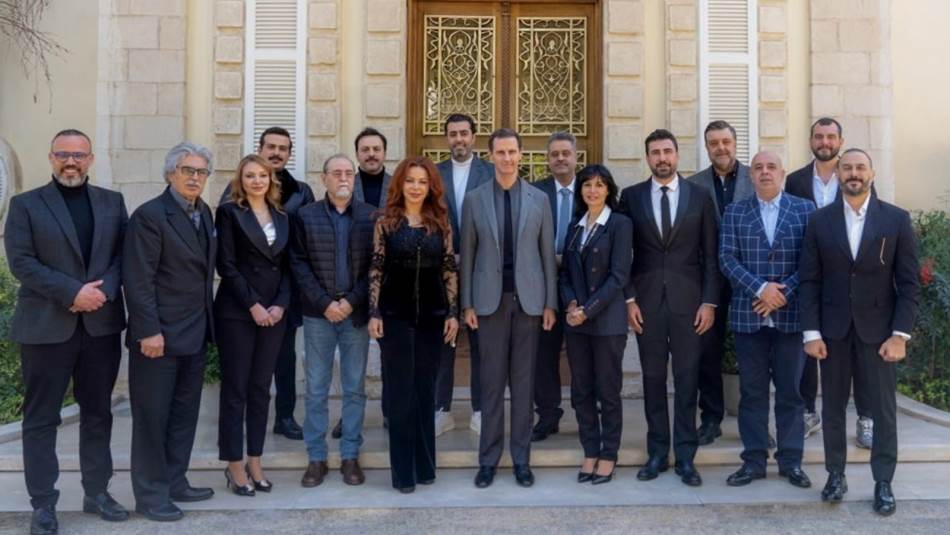In a striking juxtaposition with the glamorous “Oscar” film awards, the Syrian regime has instituted its version of an “Oscar”, not for celebrating artistic creativity but for venerating loyalty to President Bashar al-Assad. This peculiar honour, highly coveted by Syrian artists, doesn’t revolve around accolades for creative achievements but rather, the distinction of meeting Assad himself, a vision considered a prize.
As the Ramadan drama season unfolds, Assad has made his presence felt through a video clip disseminated across social media by the “Presidency of the Republic,” featuring him among Syria’s elite actors and directors at the Al-Muhajireen Palace, in Damascus. The clip showcased celebrated figures such as Suzan Najm al-Din, Nadine Tahseen Bey, and Bassam Koussa, among others, many of whom have maintained prominence in Arab and local series post-Syrian revolution, thereby earning this “honour.”
Syria’s Ministry of Tourism and AKDN Forge Partnership to Elevate Tourism Education and Training
These actors, known for their regime support, exemplify the regime’s effort to brandish Assad family support in media portrayals, including those positioning themselves as “internal opposition.” This form of allegiance was epitomized when actress Mona Wassef attended Assad’s oath-taking ceremony in 2021, post-elections, alongside other regime-loyal artists.
Diverging from his father, Hafez al-Assad’s low-profile interaction with artists, Bashar al-Assad regularly engages with the drama industry’s luminaries, crafting an image at odds with the accusations of human rights violations levelled against him. He portrays himself as a cultured patron of Syrian arts, setting against a backdrop of “Syria of Light” versus “Syria of Darkness,” echoing narratives propounded by Syrian artists and politicians since 2011.
Assad’s engagement with the arts and public appearances at cultural events aim to craft a “civilized” national identity, a strategy dating back to his ascendancy to power. This contrasts sharply with the less visible interactions between Hafez al-Assad and artists, notwithstanding the occasional narrative of his support for the arts.
Under Hafez al-Assad, the regime sought to project an image of unwavering strength, with minimal emphasis on softer, cultural pursuits. However, Bashar’s era has seen a pivot towards leveraging artists to bolster the regime’s image, in exchange for spotlight and privileges for these artists, inadvertently elevating some to stardom without merit.
For years, Syrian drama has served as an authoritative medium, dictating societal norms and political narratives, often with the regime’s tacit approval. Even as some series ventured into critique, their impact was curtailed, serving more to foster an illusion of free speech than to challenge the status quo.
Artists have not only portrayed roles on screen but have also been mobilized for political objectives, from quelling demonstrations to participating in pro-regime rallies. This intertwining of art and politics has ensured that the authority’s perspective permeates Syrian drama, with contemporary narratives often avoiding or sanitizing depictions of corruption and societal issues.
In this environment, censorship and self-censorship ensure that art remains a tool of the regime, with artists navigating a landscape where expressing loyalty to authority can often be the safest path to survival and success.
This article was translated and edited by The Syrian Observer. The Syrian Observer has not verified the content of this story. Responsibility for the information and views set out in this article lies entirely with the author.


